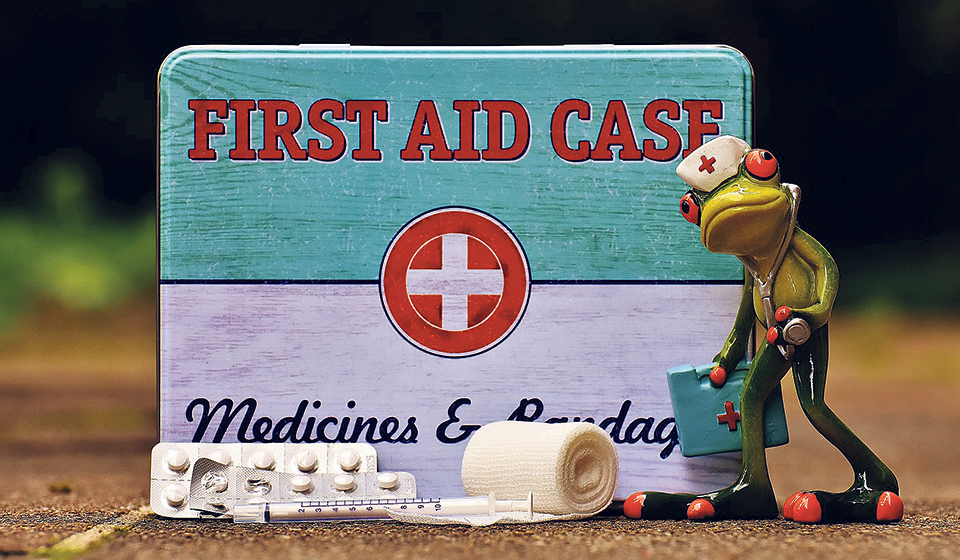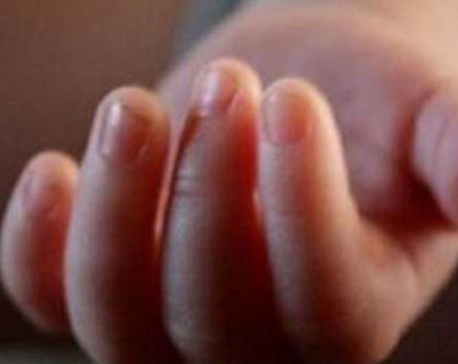
OR

While most of us have heard of ‘first aid’, the technicalities that lie behind it usually go overlooked. Much of our responses during injuries is learned from our parents or friends. And while some of those might work, many actually stem from hereditary superstitions. When you apply those remedies during emergencies, it might have unexpected consequences or worsen the situation rather than helping it. That being said, here are a few first aid myths you’ve heard growing up that you need to let go of.
Tilting your head back during nosebleed
Nosebleeds are one of the most abundant and frequent incidents we see among children and adults alike. And it’s a common belief that tilting your head back and looking up will stop the bleeding. However, doing that is actually detrimental. Pushing blood back into the system will only worsen the condition.
Chances are, the blood will instead reach your throat, then your stomach and as your body refuses it, you’ll start throwing it up. Instead, choose to lean forward and look downward. Hold a cloth or tissue to your nose and wait for the bleeding to stop. If the bleeding don’t stop after a while, visit the emergency room.
Sucking a snake bite
This is a popular one among Bollywood and Hollywood enthusiasts, sucking venom out of a snake bite. But, make no mistake; the drama factor of a scene like this is laughably impractical.
When a snake bites, the poison doesn’t stay in one spot but rather spreads through your veins. There’s no way you can stop that by sucking it out. And using your mouth will only increase the chances of the venom getting into your system as well. So really, you’re just setting yourself up for failure.
The best first aid to give a person with snake bite is to make him/her lie down if the wound is below the heart. Keep them from moving so that the venom will not spread quickly as you wait for the health staff to arrive.
Biting something during a seizure
It’s often a genuine concern that someone might bite their tongue while having a violent seizure. As a result, people tend to stuff hard objects into their mouths. It might seem like a sensible idea at first. But restraining someone’s airway is hardly a good tactic. If done haphazardly, it could clog their throat and result in untimely death.
You can put something soft—a pillow, for instance—under their head so that they don’t permanently injure themselves in any way. You can call an ambulance and wait for it to arrive. But under no circumstances is putting a something—hard or soft—inside the mouth of a person suffering from a seizure a good idea.
Using hot water for sprained ankle
Drowning our leg in hot water is a home remedy that we Nepali have been following for a long time now. But no one really talks about how harmful that can be. Applying heat to a sprained area will only invite more blood flow to it and thus result in more swelling around the injury.
The result will be much better if you use ice. It has the exact opposite reaction. It will decrease blood flow to the area and lessen swelling, making the injury much more comfortable to handle. But make sure that there is a layer of clothing between the ice and your skin. Otherwise, you might get a freezer burn.
Waking up an unconscious person
While it might be a common understanding that a person cannot be unconscious for too long and must be woken up within a few minutes of fainting, scientists have debunked that myth.
Usually, an unconscious person wakes up within one to five minutes after fainting. During this time, rather than slapping them awake, sprinkling water around their face or rubbing their hands, just leave their legs leaning against a chair.
When you force someone in that state to wake up suddenly, it’s like you’re trampling on their body’s defense mechanism. This could even lead to the person falling into a deeper coma.
So wait for five minutes. And if they do not wake up or come to consciousness, contact the emergency service.
Alcohol for hypothermia
Another thing we’ve often seen in Bollywood movies—having alcohol will warm up your body and save your life if you’re about to die of hypothermia in the middle of nowhere. That is untrue.
It isn’t a lie that alcohol gives you a feeling of warmth. But it also relaxes many of our body’s reflexes. One of them is keeping our core body temperature high when we’re in a cold zone. So really, alcohol in your system actually lowers the temperature of your body. Thus, drinking while you’re freezing will give you an exact opposite result than what you’re aiming for.
Instead, try adding extra layers of clothes for warmth and consume warm fluids and food rich in carbohydrate so that it will give you the necessary energy to move around.
You May Like This

Two siblings killed by snake bite
RAJBIRAJ, Sept 22: A sister and her brother were pronounced dead after a poisonous snake bit the two siblings last... Read More...

Five including three children die in separate accidents
LAHAN, July 21: Five people including three children died in separate incidents that took place in the district on Saturday.... Read More...





Just In
- CM Kandel requests Finance Minister Pun to put Karnali province in priority in upcoming budget
- Australia reduces TR visa age limit and duration as it implements stricter regulations for foreign students
- Govt aims to surpass Rs 10 trillion GDP mark in next five years
- Govt appoints 77 Liaison Officers for mountain climbing management for spring season
- EC decides to permit public vehicles to operate freely on day of by-election
- Fugitive arrested after 26 years
- Indian Potash Ltd secures contract to bring 30,000 tons of urea within 107 days
- CAN adds four players to squad for T20 series against West Indies 'A'













Leave A Comment